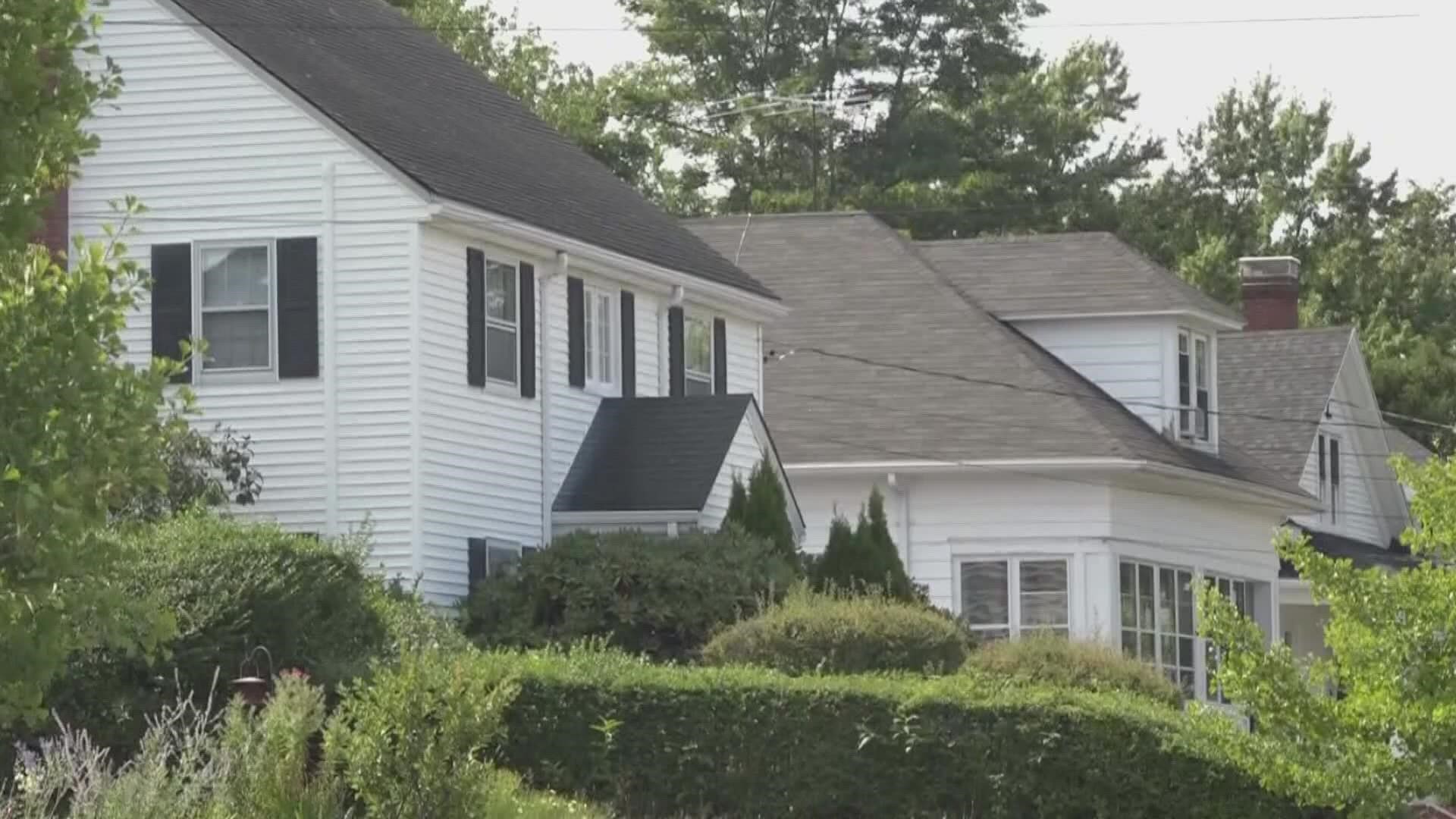AUGUSTA, Maine — Gov. Janet Mills signed two bills into law Wednesday, both aimed at addressing Maine’s housing shortage.
LD 201 extends the Historic Property Rehabilitation Tax Credit for an additional five years, from 2025 to 2030.
The tax credit allowed for the old Hodgkins School in Augusta, once condemned to be destroyed, to instead be converted into low-income senior housing. Forty-seven people now call it home. All residents are 55 years old or older, and all qualify for low-income housing.
Mills, a Democrat up for re-election in the fall, sat in the middle of the entrance to sign the bills.
"For thousands of Maine families, an affordable home is just out of reach for a lot of reasons," she said from a podium as more than a dozen residents looked on and a crowd of legislators and local officials stood behind her.
"Our housing shortage is not new," she continued. "But with more people wanted to move to Maine than ever before, and we welcome them, the demand has driven up prices even higher. In fact, the median sales price of a single-family home has risen by 50 percent since the pandemic."
The other bill of the day was LD 2003, which expands the ability to build multi-unit properties in certain residential zones. The bill was a cornerstone of the agenda of House Speaker Ryan Fecteau, D-Biddeford, during the legislative session that ended this week.
Opponents in the legislature, including Rep. John Andrews, R-Paris, said the law would impose on local government rule.
"LD 2003 takes that longstanding liberty and gives it to the un-elected central planners in the federal government," he said during debate on the House floor.
"You can strip away everything else in LD 2003 and put them in stand-alone bills, some of which I would probably vote for to de-regulate zoning and land use," he said.
On Wednesday, Mills said the new law will not impede on local planning and regulations. Fecteau said it will ease housing shortages, simply by allowing people to expand their own property.
"With LD 2003, we're putting more power in the hands of Mainers who own land or a home already," he said. "Letting folks add an in-law apartment over their garage; or a tiny home in their backyard; adding more housing for Mainers who are facing this ever-growing crunch."
Rep. Bruce Bickford, R-Auburn, supported the bill after his own housing bill failed during the same session.
"This is important. It doesn't go far enough, but it gets us started in the right direction," he said after joining the ceremony. "To get us to go further would be to open up some of the (agriculture) land that's idle. It's not used for farming; it's not used for anything; it just sits there."
Amanda Olson, executive director of the Augusta Housing Authority, said that in her city alone, 874 more units of affordable housing are needed to meet demand.

